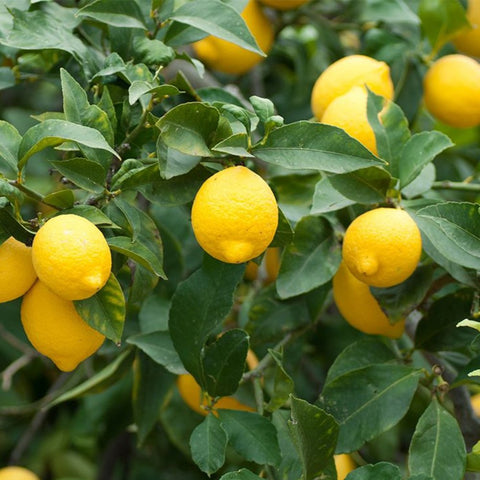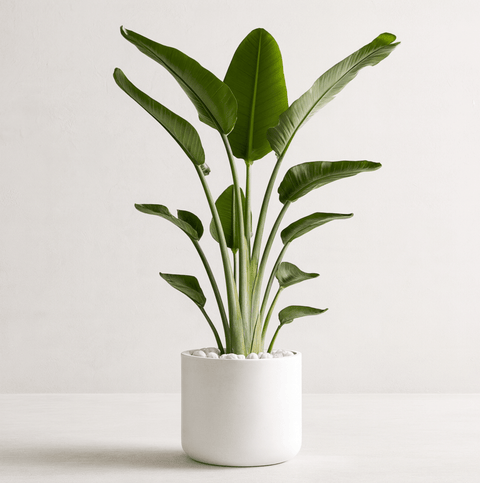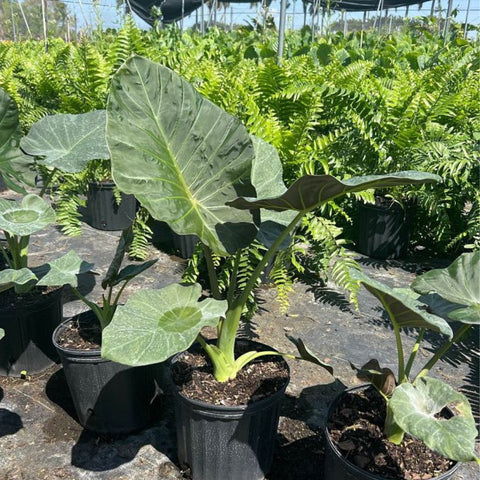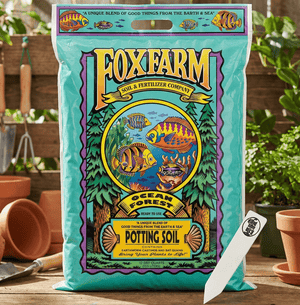I. Introduction
The world of coffee is more than just a morning ritual or a mid-afternoon pick-me-up—it's a booming industry that has seen significant changes and movements in recent years. Among these, organic coffee has emerged not just as a trend but as a staple for coffee enthusiasts who are increasingly aware of health and environmental implications. As global coffee consumption continues to rise, the demand for transparency and sustainability is more critical than ever.
Organic coffee isn't just about avoiding synthetic fertilizers or pesticides. It's about cultivating a product that benefits both the consumer and the ecosystem. In this post, we'll delve deep into the multifaceted world of organic coffee plants, exploring the intricacies of cultivation, the benefits of going organic, and its impact on our environment and societies.
II. Understanding Organic Coffee

Definition of Organic Coffee
At its core, organic coffee is coffee that is grown without the use of synthetic fertilizers, pesticides, herbicides, or genetically modified organisms (GMOs). For coffee to be certified organic, both the growers and roasters must adhere to strict guidelines set by certification bodies like USDA Organic in the United States or Europe’s equivalent, the EU Organic Seal.
Certification and Standards
Certification involves a rigorous process where farmers must transition their fields over several years, allowing the land to rid itself of synthetic chemicals. Annual inspections ensure compliance. Labels such as Fair Trade or Rainforest Alliance often accompany organic certifications, enhancing the sustainability credentials.
III. The Cultivation of Organic Coffee
Climatic and Soil Requirements
Coffee, especially organic coffee, thrives best in regions known as the Coffee Belt—areas between the Tropics of Cancer and Capricorn. These regions provide the optimal temperature, altitude, and rainfall necessary for healthy growth. Organic farming often encourages biodiversity and uses natural shade from other trees to create an optimal microclimate for coffee plants.
The Role of Shade-Grown Coffee
Shade-grown coffee is a hallmark of organic coffee farming, allowing coffee plants to coexist with a variety of other plant species. This method not only supports the ecosystem but also enhances the flavor profile of the coffee by slowing the maturation of the coffee cherries.
Cultivation Practices
Organic coffee farming employs methods such as composting, intercropping, and agroforestry. These practices not only improve soil health and reduce erosion but also support local biodiversity by providing habitat for native species.
IV. Benefits of Organic Coffee

Health Benefits
Organic coffee is free from harmful chemicals, which means less exposure to residues that can lead to health concerns over long-term consumption. It’s often considered richer in antioxidants, believed to contribute to reduced inflammation, enhanced cognitive function, and reduced risk of certain diseases.
Environmental Benefits
By promoting biodiversity, conserving water, and reducing pollutants, organic coffee farming is significantly more sustainable. The absence of synthetic chemicals helps maintain natural soil fertility and reduces contamination of local water supplies.
Societal Benefits
Many organic coffee farms incorporate fair trade principles, ensuring farmers receive fair wages and work in humane conditions. This socioeconomic benefit fosters community development and support, leading to improved livelihoods and better sustainability practices.
V. Economic Challenges and Market Trends
Cost Implications
Though there are many benefits to organic coffee, the transition and upkeep of organic certification are not without challenges. The certification process and sustainable practices can drive up production costs, often leading to a higher price point for the consumer. Despite this, the growing demand for organic products suggests a willingness among consumers to pay a premium for organic coffee.
Market Trends
As of recent years, the market for organic coffee has seen significant growth, often outpacing conventional coffee market growth. Consumers are more informed and continue to demand transparency and sustainable sourcing. This has pushed major retailers and coffee chains to incorporate organic options into their menus.
VI. Bringing Organic Coffee Into Your Home
Choosing the Right Beans
When selecting organic coffee, look for certification labels to ensure authenticity. Pay attention to the roast type, whether it’s light, medium, or dark, to match your personal taste preferences.
Home Brewing Techniques
For the best flavor experience, grind your coffee just before brewing. Methods such as the French press, Chemex, or espresso machine each bring out different flavors, so experiment to find your preferred method. Remember, the quality of your water plays a role equal to your coffee beans, so use filtered water when possible.

VII. Why Choose Plantology?
Our Commitment to Sustainability
At Plantology, we are dedicated to bringing the finest organically grown plants to your doorstep, echoing the same principles found in organic coffee farming. Our selection includes a wide range of vibrant, sustainable plants that can complement a sustainable lifestyle, like the Adonidia Palm Double, a beautiful addition to any home or garden.
Adding Greenery to Your Life
We believe every household should be able to enjoy the beauty and benefits of plants. Whether you're interested in cultivating your green thumb with something exotic or getting started with easy-care greenery, Plantology has products tailored to any gardening need. Explore our collection to enhance your living space with plants like Agapanthus Lily of the Nile - Blue and Agave Blue.
VIII. The Future of Organic Coffee
Innovation and Technology
The organic coffee industry is ripe with innovation. From improvements in farming techniques to technology aiding in weather pattern predictions, the future holds great potential for more efficient and productive organic farming practices.
A Global Movement
The push for organic is not limited to coffee. As consumers become increasingly environmentally conscious, the demand for organically grown products across all categories continues to swell, signifying a broader shift towards sustainable living.

IX. Conclusion
The allure of organic coffee is more than just its rich taste or health benefits—it’s a reflection of a growing societal shift towards products that respect both the consumer and the planet. By choosing organic, you’re partaking in a movement that values transparency, sustainability, and the well-being of the global community.
At Plantology, we're proud to align ourselves with these values by offering a diverse array of sustainable plants that can enrich your home and contribute to a healthier planet. Discover our selection today and join us in cultivating a greener future.
Explore more of our collections and find the perfect plant companion with our offerings at Plantology.
``` I'm glad to assist with expanding this HTML article on organic coffee. Let's continue with more details and examples to reach the target length: ```htmlX. Deep Dive into Organic Coffee Practices
Advanced Organic Farming Techniques
To delve deeper into the world of organic coffee cultivation, it's crucial to understand some advanced techniques employed by farmers to optimize yield and quality without compromising the principles of organic agriculture. One of these techniques includes biodynamic farming, which takes organic practices a step further by focusing on the holistic development and interaction of the plants with their surrounding ecosystem. This method often involves using natural composts, and in some instances, complex herbal and mineral concoctions that aim to strengthen the soil and promote robust plant growth.
Another noteworthy practice is permaculture, a dynamic approach where coffee is grown synergistically with other crops. This polyculture method allows coffee plants to benefit from the symbiotic relationships with trees and other vegetation, assisting in pest control, nutrient recycling, and providing organic matter that improves soil structure. For instance, integrating leguminous trees within coffee farms can naturally enrich the soil with nitrogen, a critical element for plant growth, thus bypassing the need for synthetic fertilizers.
Case Study: The Transformation of a Coffee Plantation
A practical example of organic coffee success can be found in the transformation of the La Finca Milagrosa in Costa Rica. Initially a conventional coffee farm, La Finca Milagrosa transitioned to organic methods in the early 2000s. The shift involved retraining staff to adopt organic practices such as natural pest control and shade management. By nurturing a biodiverse environment, the farm has not only revitalized the local ecosystem but also improved the flavor profile of its coffee, receiving accolades in international competitions.

XI. The Consumer's Role in Promoting Organic Coffee
Educational Awareness
Consumers play a pivotal role in propelling the organic coffee movement. Greater awareness and education about the benefits of organic products can drive demand, encouraging more farms to transition to organic methods. Initiatives like coffee-tasting workshops and farm tours can bridge the gap between consumers and producers, allowing coffee enthusiasts to experience firsthand the impact of their purchasing decisions on communities and environments worldwide.
Supporting Ethical and Sustainable Brands
When shopping for coffee, consumers can choose brands that align with their values regarding sustainability and ethics. By opting for coffee companies that champion fair trade and environmental stewardship, consumers can ensure their purchases contribute to positive societal and ecological impacts. Companies like Example Coffee Co. offer insights into their sourcing practices, providing transparency about their supply chain and support for coffee-growing communities.
XII. Comprehensive Guide to Organic Coffee Varietals
Popular Organic Coffee Varietals
Organic coffee, like its conventional counterpart, comes from several varieties of coffee plants, each offering distinct flavors and caffeine content. Some popular organic varietals include Arabica, known for its sweet, soft taste with notes of sugar, fruit, and berries, and Robusta, which boasts a stronger, harsher taste with a hint of peanut and chocolate. Within these major categories, you'll find an array of sub-varietals like Bourbon, Typica, and Geisha, each providing unique taste profiles and aromatic traits.
Exploring Lesser-Known Varietals
Adventurous coffee drinkers seeking novel experiences might explore lesser-known organic varietals. For example, the Catimor variety, often grown organically in Central America, provides a bold and spicy flavor with subtle chocolate undertones. Meanwhile, the Mundo Novo, a Brazilian favorite, combines the best of Typica and Bourbon, offering a balance of rich nutty flavors and citrus notes.
XIII. Sustainability Beyond Organic: The Circular Coffee Economy
Recycling and Upcycling Coffee Waste
The sustainable journey of organic coffee does not end at consumption. The circular coffee economy aims to address waste management by finding innovative uses for spent coffee grounds and other by-products. Coffee grounds, rich in nitrogen and other nutrients, can be repurposed as fertilizers in gardens, promoting plant growth. Additionally, spent grounds can be used in beauty products such as exfoliating scrubs or even to make biodegradable packaging material.
Community-Led Initiatives
The development of a circular coffee economy often involves the participation of local communities. Initiatives like community composting projects can be instrumental, whereby coffee waste from local cafes is collected and composted to enrich community gardens. Successful programs like these create a win-win scenario, reducing waste and enhancing community engagement with sustainable practices.

XIV. Culinary Inspirations: Incorporating Organic Coffee into Cooking
Coffee as a Versatile Ingredient
Beyond brewing, organic coffee can serve as a culinary ingredient, adding depth and complexity to various dishes. Chefs and home cooks alike are experimenting with coffee rubs for meats, where the rich, earthy notes of coffee complement beef or pork, creating beautifully seared crusts. In baking, espresso powder can intensify chocolate flavors in desserts like brownie and cake recipes, resulting in a decadent and aromatic experience.
Gourmet Coffee Cocktails
For cocktail enthusiasts, organic coffee offers endless possibilities. Classic cocktails such as the espresso martini can be elevated using high-quality organic espresso, providing a smooth and robust coffee flavor that pairs well with vodka and coffee liqueur. For a non-alcoholic option, coffee tonics—made by combining organic cold brew with tonic water and a hint of citrus zest—are refreshing beverages that highlight the nuanced flavors of organic coffee.
XV. Conclusion: Crafting a Sustainable Coffee Future
The journey of organic coffee from farm to cup tells a story of sustainability, innovation, and conscious consumerism. As we continue to prioritize environmentally friendly and socially responsible practices, organic coffee stands as a beacon of a better future for both our planet and its inhabitants. By choosing organic coffee, individuals contribute to reducing the environmental impact of agriculture, supporting fair wages for farmers, and indulging in a superior coffee experience.
At Plantology, we uphold similar principles in our offerings, ensuring that our customers enjoy not only vibrant, sustainable plants but also contribute to a more sustainable lifestyle. Just as in the coffee industry, our goal is to empower consumers to make choices that align with their values, nurturing an appreciation for nature and community. Visit Plantology to explore our curated selection of plants and join us in cultivating a brighter, greener future.
In choosing organic coffee, you're not just changing your morning routine; you're changing the world.
``` This continuation provides an in-depth look into various aspects of organic coffee, including farming methods, consumer roles, varietals, and further sustainability efforts, as well as a touch on the culinary aspect, ensuring a comprehensive and engaging read.





























Comments (0)
There are no comments for this article. Be the first one to leave a message!